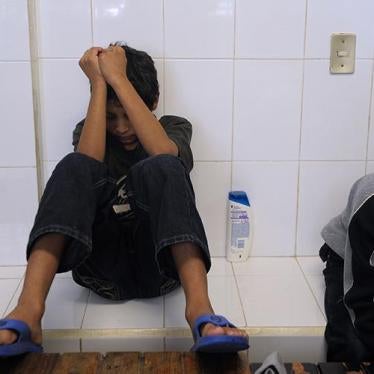Burmese dictator Gen. Than Shwe has been tempting foreign investors for almost 20 years with hints that he wants to open the economy in Burma, also known as Myanmar, along the Chinese model. But contrary to Stanley A. Weiss's suggestion ["Ending our isolation in Asia," op-ed, Dec. 3], there is no evidence that the general means it. In fact, the Burmese government continues to stifle genuinely private enterprise as thoroughly as it crushes political dissent.
Authoritarian leaders in countries such as Vietnam and China at least see some connection between their own interests and the well-being of their people, and so have promoted economic development. In contrast, the economic strategy of Burma's leaders has long consisted of selling natural resources to foreign partners and stashing the proceeds, which are hidden from the state budget, in foreign banks. The Burmese government invests virtually nothing in health, education or infrastructure. It is massively corrupt, does not respect property rights and denies economic opportunity to all but cronies of the generals in power.
Lifting banking sanctions against Burma would not benefit ordinary Burmese, but the government would find it even easier to hide its wealth in hard currency overseas. If the United States lifted investment sanctions, the only U.S. companies likely to risk betting on Burma would be in the oil and gas industry. Such companies might thrive in Burma, but they employ few people, transfer little intellectual capital and would do about as much to promote democracy as they have in Sudan and Saudi Arabia.
If Mr. Weiss knows of firms in other industries eager to test the Burmese government's promises, their shareholders should be grateful that sanctions are preventing them from making a costly mistake.
Tom Malinowski is Washington director of Human Rights Watch.






